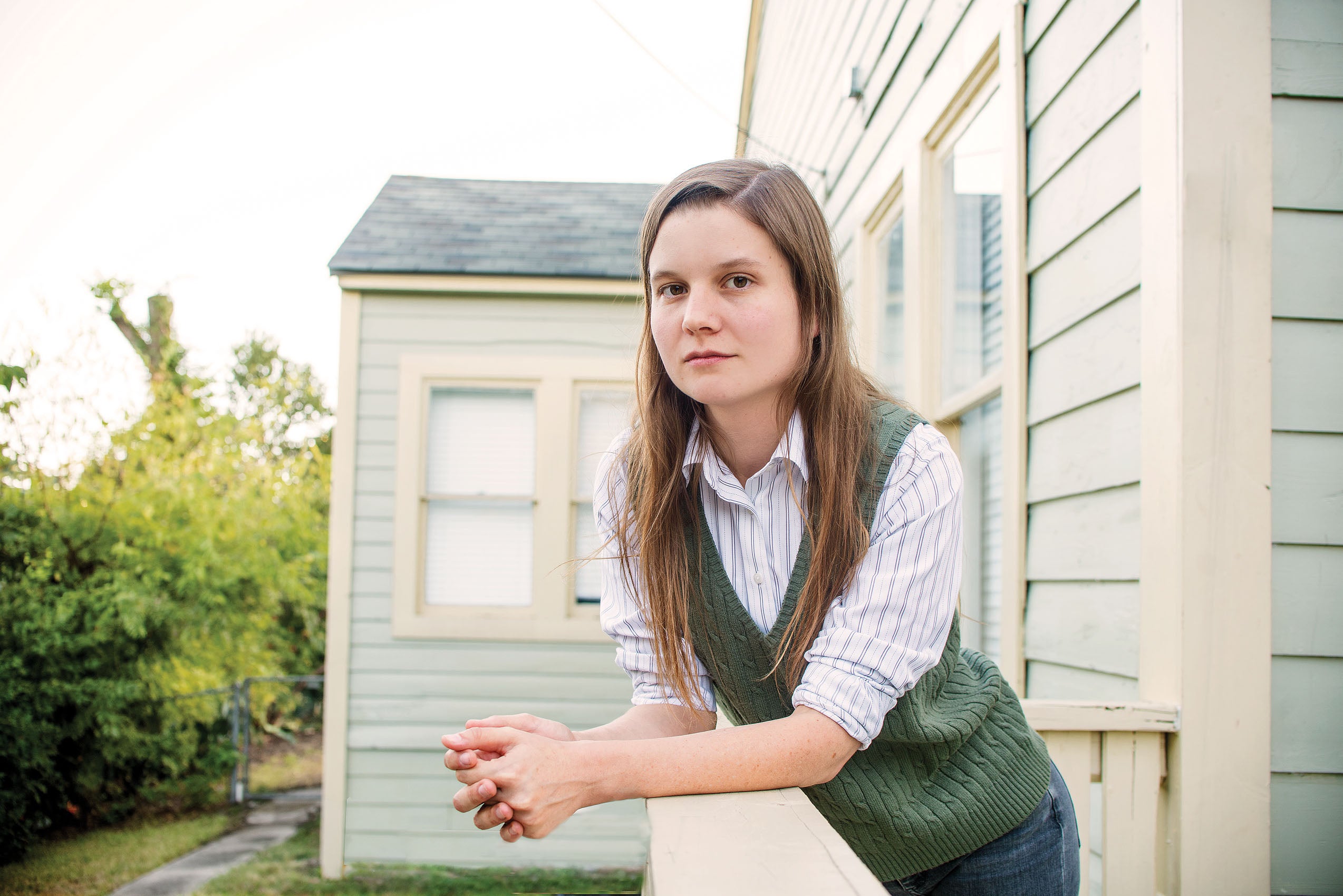In a small trailer, surrounded by hundreds of other trailers, encircled by a fence, in the middle of South Texas scrubland, Brianna Rennix does her work. Sometimes it takes 12 hours. Sometimes it takes more. At some point each day, she leaves the largest family detention center in America, drives five minutes through the small town of Dilley, and settles in to work some more at home.
“It’s more of a lifestyle than a job,” said Rennix, a staff attorney with the Dilley Pro Bono Project, which provides universal representation to thousands of asylum-seeking families, mostly Central Americans, who are detained at the center each year.
“Policies that are words in the news impact our work within 24 hours and alter what our clients have to prove.”
Rennix first visited the detention center, formally known as the South Texas Family Residential Center, in the summer of her 1L year. And what she saw there, and heard there, she could not get out of her mind. Back at school, she immersed herself in the Harvard Immigration and Refugee Clinical Program, grounding herself in the legal standards, learning to develop arguments, and working under some of the strongest immigration advocates she knows, including John Willshire Carrera and Nancy Kelly.
“John and Nancy really exemplify what it means to dedicate your entire life to a moral cause,” she said.
Rennix’s first client as a 2L fit the description of so many of her clients now: a woman fleeing Central America with her child after surviving severe domestic violence. HIRC specializes in these gender-based claims, an overwhelming majority of which they win.
At some point in the process, it occurred to Rennix that her client was not just fighting for asylum. She was fighting for stable housing, for mental health support, for work that would not exploit her, for relationships that would be safe.
“She had so many other stressors that made her daily life hell to live,” said Rennix.
In keeping with its holistic approach to client work, HIRC provides as much support as it can. A social worker, Liala Buoniconti, works closely with clients, as well as students and staff, to connect them to resources and provide trauma-sensitive support. Before difficult meetings, she’ll lead clients through breathing practices and other calming techniques.
“I do think that’s so valuable to have those resources,” said Rennix. “I work in an environment now where nothing like that is possible.”
That environment reminds her of a Japanese internment camp, she said, with trailers set up for people who are detained, and a trailer provided for lawyers, without so much as a sign to let people know the services provided inside.
“We have to rely on people magically knowing we’re there and coming to see us,” said Rennix.
As a staff attorney, she spends most of her days preparing clients for credible fear screenings or for reviews of negative decisions in immigration court; training groups of new volunteers, who arrive every week to provide support for five days; and reading through the latest news.
“A lot of the policies that are words in the news impact our work within 24 hours and completely alter the face of what our clients have to prove, and the likelihood they’ll be deported,” she said.
In July, it was the attorney general’s decision to limit asylum claims based on family membership. In September, it was the “third country transit ban,” barring most people from asylum if they travel through a third country on their way to the southern border of the U.S.
Add to that procedural changes that made it harder for families to access counsel and gather evidence for their cases, and all of a sudden, said Rennix, success rates for credible fear interviews at Dilley dropped drastically from 99 percent.
Still, there are good days at Dilley, particularly with colleagues so united in what they do. Last year, Rennix said, a group of attorneys from several firms and organizations advocated for a group of families who were previously separated under the government’s “zero tolerance” policy and detained at Dilley for many months; the lawyers reached a settlement with the government that allowed the mothers another chance to be interviewed.
All of the women passed their credible fear interviews, allowing them to pursue their asylum claims, and the mothers and children were finally released from detention.
“We got to take them all to the airport and see them off,” said Rennix. “So that was really nice.”
But of course there are the bad days, when families are deported or separated, and Rennix can do nothing at all. Recently she drove hours to visit a woman who was removed from Dilley, separated from her son and sent to an adult detention center alone.
“That was a really painful meeting,” she said. “The woman basically said, I would rather be dead than have this happen to me.”
And yet there is nothing Rennix would rather be doing with her life. She has the skills to do this work; it feels, she said, like her moral obligation to use them. It makes no sense to her, the way the Trump administration is targeting Central American immigrants.
“The whole legal system is stacked against them,” said Rennix, speaking of her clients. “You have to do anything you can to throw yourself in the way of that—sometimes to make the bad laws better, sometimes to stop the bad laws from working at all.”
View additional profiles from our story, Prepared for the Challenge, including:
